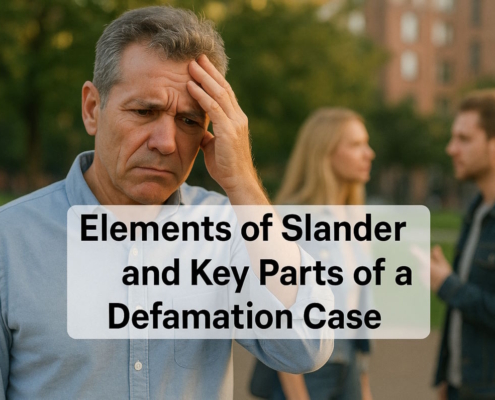Are undocumented immigrants allowed to vote?
In most American elections, only citizens of the United States are eligible to cast ballots. Although it is not explicitly forbidden by federal law, noncitizens are not allowed to vote in most state and municipal elections. Noncitizens are ineligible to vote in federal elections, including presidential elections, due to the Illegal Immigration Reform and Immigrant Responsibility Act, which was approved by Congress in 1996.
Things Were Different Before
In the early days of the American democratic republic, every state extended the right to vote to all inhabitants, regardless of citizenship status, or to those who wanted to become citizens of the United States. This was known as suffrage. (It wasn’t until 1920 that women finally got the vote from Congress.)
More stringent regulations limiting the voting rights of noncitizens replaced these more forgiving practices at the start of the twentieth century. As far as states go, Arkansas was the latest to limit voting rights for noncitizens. That was in the year 1926.
Voting Rights for Naturalized Citizens
Nevertheless, there is a means for those who are not citizens to acquire the right to vote. Citizenship grants the right to vote to foreign nationals who have lived in the United States for a certain period of time and qualified for permanent residence status.
But, becoming a naturalized citizen is not a given and may be a lengthy process. You can’t apply for citizenship until you’ve lived in the US for five years as a legal resident.
Noncitizens with green cards, who are considered permanent residents, are often not allowed to vote in federal elections. Certain state and local elections are open to legal permanent residents, including those in Chicago and San Francisco. Noncitizens are able to cast ballots in municipal council or public school elections in these areas, for instance.
No U.S. voting location will accept an undocumented immigrant.
Do You Have the Right to Vote? A Faulty Science
Determining your voting rights can be a complicated process. The United States government enacted the “Motor Voter” statute in 1995. When customers apply for a driver’s license or identification card, the motor vehicle service office must provide them with voter registration papers according to this federal statute.
Keep in mind that just because you have documents outlining the process to register to vote doesn’t mean you actually have the right to vote. By modifying the 1995 statute in certain ways, certain states now permit DMV clerks to inquire as to the applicant’s citizenship status before to issuing registration cards.
Proponents of noncitizen voting rights argue that all those who work and pay taxes in the US should be able to vote. They view the practice of denying voting rights to certain citizens as “taxation without representation.” It was against this very notion that the forefathers of the United States battled.
Federal officials are still not convinced that noncitizens should be able to vote, despite these reasons.
Problems with Voter Fraud
Voter fraud is a real concern, which is why noncitizens are unable to cast ballots. Political leaders are worried that illegal immigrants and others who do not meet eligibility requirements may get voting rights.
It was discovered in 2011 by the Florida Department of State that hundreds of noncitizens had registered to vote, with some of them having cast ballots in previous elections.
Violators of voting rules who are not citizens face penalties such as fines and perhaps deportation. Convicted offenders face jail time. For instance, 33 individuals were convicted by the state of Texas in 2018 for voting unlawfully. In the same year, North Carolina authorities brought charges against nine permanent residents and nine foreign nationals for comparable offenses.
As of 2016, the governor of California did away with the legal consequences for noncitizens who accidentally registered to vote through the DMV. For example, in the event that a clerk at the DMV incorrectly verifies a voter’s registration, it would not penalize a noncitizen.
The Right of Noncitizens to Vote in Other Nations
Voting restrictions for non-citizens are less stringent in other nations. Fifteen European, Latin American, and British Commonwealth nations granted noncitizens varied degrees of voting rights between the 1960s and 1990s. There are immigrant suffrage systems in place in at least 45 nations.
In many cases, countries extended voting privileges to associated nations as a gesture of goodwill. They thought it would be safe for citizens of one country to cast ballots in another, and vice versa.
Most countries throughout the world only allow residents to vote in municipal or state elections.
Voting by Noncitizens in Local Elections
There are several cities and states that provide exemptions for noncitizens who are interested in voting. The city of San Francisco approved Proposition N in 2017. Any citizen or permanent resident who is a parent or legal guardian of a school-aged child in the city might vote in school board elections under this measure.
Voting in municipal elections is open to non-citizens in at least fourteen different jurisdictions. Two of these municipalities are located in Vermont, while eleven are in the state of Maryland.
A total of eight states have considered bills that would make it easier for foreign nationals to cast ballots. Some of these bills are still pending because state legislatures have decided to veto or delay them.
The state of New York has made four attempts to amend laws that restrict the voting rights of non-citizens since the year 2003. By June 2022, a judge in a state court had ruled that New York City’s policy permitting noncitizens to vote in municipal elections was unconstitutional, despite the fact that the city had previously passed an ordinance authorizing such voting.
In short, you won’t be able to cast a ballot in any upcoming elections unless you’re a citizen of the US. Politicians and election officials have guaranteed that.






























